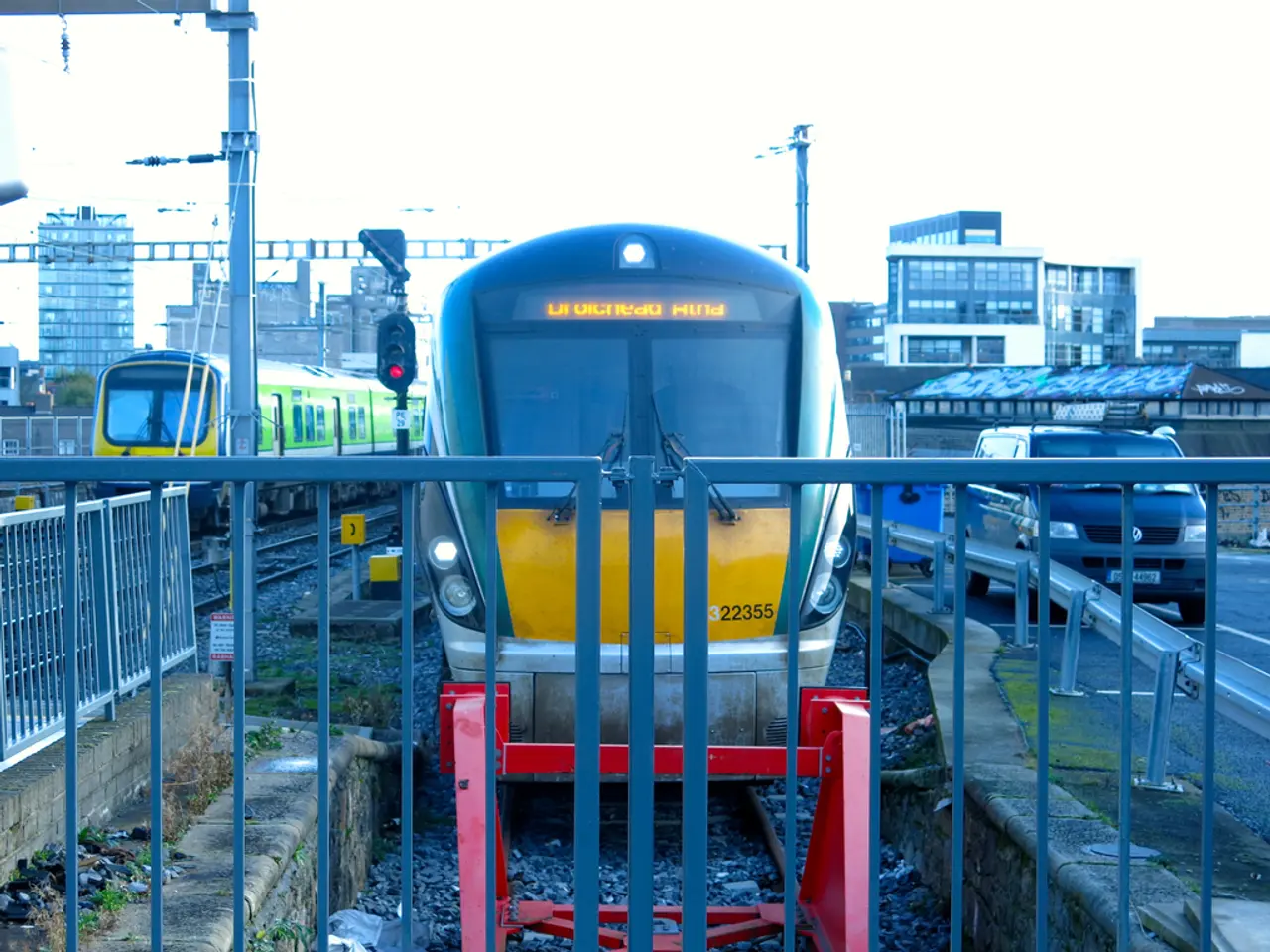Escalating rail tariffs jeopardize the continuous flow of goods in extended transportation routes.
The ongoing political debate in Germany revolves around the rising costs of rail track access for railway companies, particularly Deutsche Bahn (DB), and its impact on long-distance rail traffic. The reform of the track price system, including the potential limitation of equity capital interest, is part of the coalition agreement and has sparked concern from DB's CEO, Richard Lutz.
Lutz has expressed his worries about significantly increased track prices for railway companies, which could affect the financial viability of long-distance offerings. The concern arises from the potential 10.1% increase in track prices for long-distance transport, as well as the 23.5% increase for regional transport and a 14.8% increase in freight transport, currently being considered for approval in 2026.
The controversy surrounding infrastructure management and access conditions faced by railway companies is not new. Deutsche Bahn's refurbishment and infrastructure projects, such as the planned nine-month closure of the 278-kilometer Hamburg-Berlin line starting August 2025, have been met with criticism from freight operators. These operators argue that prolonged closures and the current infrastructure planning strategy are damaging to freight transport and are not adequately addressed by governmental entities.
Political actors and rail operators are calling for more institutional dialogue and involvement in infrastructure planning to avoid disruptions and ensure that the interests of all rail traffic segments, particularly freight, are considered. The Deutschlandticket, a nationwide public transport subscription ticket, while promoting affordable public transport access, focuses on local and regional transport rather than long-distance rail.
Martin Burkert, the chairman of the Railway and Transport Union (EVG) and vice-chairman of the DB supervisory board, has also warned of rising track prices and their potential impact on long-distance traffic offerings by Deutsche Bahn. He has urged the Bundestag to stop the price increases and ease the rail toll through targeted promotion to avoid historic price increases for rail customers this year.
The decision on track prices for next year is not yet finalized, and the Federal Network Agency is awaiting a procedure before the European Court of Justice to determine whether a limitation of track price increases for regional transport is legally permissible. The European Court of Justice's decision could impact the prices for next year.
If the political framework does not allow for it, all companies in the market-economy and competition-based transport markets must limit themselves to offers that are economically viable. For the fiscal years 2025 and 2026, it is hoped that a solution will be found in the parliamentary budget process to close the remaining funding gaps.
Lutz believes that without higher political support, there is a threat of a reduction in the long-distance traffic offerings of the state-owned corporation. He stated that if the current track price promotion and the subsequent reform of the track price system are not sufficient, the long-distance traffic may need to adjust its offerings to ensure economic viability. Burkert also warned that long-distance connections on heavily traveled routes could be significantly reduced.
The reform of the track price system, including the potential limitation of equity capital interest, is part of the coalition agreement. If implemented, this reform could help alleviate some of the concerns about rising track prices and their impact on long-distance rail services. However, the final decision on track prices for next year is still pending, and several months are likely to pass before a decision is made.
- Richard Lutz, the CEO of Deutsche Bahn (DB), has expressed concerns about the potential impact of significantly increased track prices on the financial viability of long-distance rail offerings.
- The concern arises from the proposed increases in track prices for long-distance transport, regional transport, and freight transport, which could lead to historic price increases for rail customers if approved in 2026.
- Martin Burkert, the chairman of the Railway and Transport Union (EVG) and vice-chairman of the DB supervisory board, has urged the Bundestag to stop the price increases and ease the rail toll through targeted promotion to avoid such historic increases.
- The reform of the track price system, as part of the coalition agreement, could help alleviate some of the concerns about rising track prices and their impact on long-distance rail services; however, the final decision on track prices for next year is still pending.





